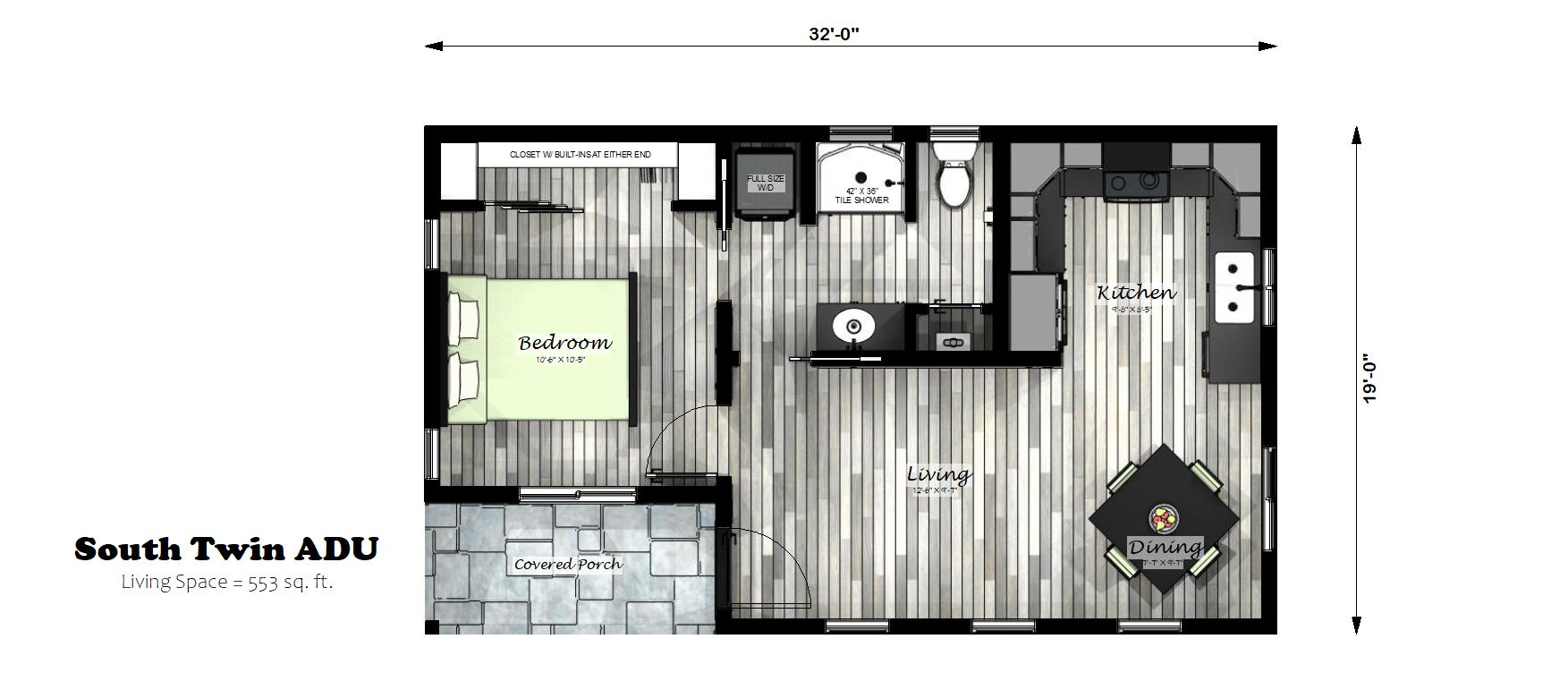Pros and Cons of Adding an ADU to your Central Oregon Property
Are you considering adding an Accessory Dwelling Unit (ADU) to your property? ADUs, also known as granny flats, in-law suites, or backyard cottages, are becoming increasingly popular as a way to add extra living space to a property. But before you make the decision to build an ADU, it’s important to weigh the pros and cons. In this article, we’ll explore the benefits and drawbacks of adding an ADU to your property.
The Pros of Adding an ADU
Additional Income Potential
Adding an ADU to your property comes with numerous advantages, but one of the most significant is the potential for generating additional income. By renting out the ADU to tenants, homeowners can enjoy a reliable source of passive income that can help them in various financial ways. This additional income can prove to be incredibly valuable for those who are seeking to boost their earnings, pay off their mortgage more quickly, or simply enhance their overall financial situation.
Tax Benefits
In certain regions, homeowners can take advantage of tax benefits when they decide to add an Accessory Dwelling Unit (ADU) to their property. One such example can be seen in the state of California, where homeowners who choose to construct an ADU on their property may qualify for a property tax exemption that is specifically designed to account for the added value that the unit brings to their overall property value. Ultimately, this tax benefit could lead to substantial savings for homeowners over the course of time, making it a desirable option for those looking to maximize their property investment.
Increased Property Value
Adding an ADU to your property can significantly increase its overall value for several reasons. Firstly, in areas where housing is in high demand, such as urban or metropolitan areas, ADUs can be a highly desirable option for both renters and potential buyers. The additional living space and flexibility provided by an ADU can attract a wider range of individuals looking for a place to live. Furthermore, the potential rental income or extra living space that an ADU offers can make your property more attractive to investors or those looking to purchase a home as an investment. Ultimately, by adding an ADU to your property, you are not only enhancing its market appeal but also its potential financial value, which can be advantageous if you plan on selling your property in the future.
Multigenerational Living
Accessory Dwelling Units, commonly referred to as ADUs, offer a viable solution for those seeking to accommodate multiple generations under one roof. For instance, if you have elderly parents who require close supervision and care, an ADU can serve as a suitable living arrangement that allows them to maintain their independence while remaining in close proximity to family members who can provide assistance when needed. Additionally, ADUs can also cater to adult children who desire more privacy and autonomy by offering them a separate living space within the same property. This arrangement not only promotes family togetherness but also ensures that each member has the necessary support and assistance readily available.
Flexibility for Homeowners
ADUs can also provide flexibility for homeowners. They can be used as a home office, a guest house, or even a space for aging parents to live independently while still being close by. This flexibility can be beneficial for homeowners who want to make the most out of their property.
The Cons of Adding an ADU
Cost
One of the biggest drawbacks of adding an ADU is the cost. Building an ADU can be expensive, and the cost can vary depending on the size, location, and materials used. Homeowners should carefully consider their budget and the potential return on investment before deciding to build an ADU.
Zoning and Permitting Restrictions
Another potential drawback of adding an ADU is the zoning and permitting restrictions. Some areas have strict regulations on ADUs, including size limitations, parking requirements, and design guidelines. Homeowners should research their local regulations and obtain the necessary permits before beginning construction.
Maintenance and Upkeep
With an ADU comes additional maintenance and upkeep. Homeowners will need to consider the cost and time required to maintain the unit, as well as any potential repairs that may arise. This can be a significant factor for those looking to rent out the ADU, as it will require regular upkeep to attract and retain tenants.
Potential Disruption to Neighborhood
Adding an ADU to your property can also cause disruption to your neighborhood. Construction can be noisy and disruptive, and the addition of a rental unit may change the dynamic of the neighborhood. It’s important to consider the impact on your neighbors and address any concerns they may have before moving forward with an ADU.
Conclusion
Adding an ADU to your property can have many benefits, including additional income, tax benefits, and increased property value. However, it’s important to carefully consider the potential drawbacks, such as cost, zoning restrictions, and maintenance. By weighing the pros and cons, homeowners can make an informed decision about whether adding an ADU is the right choice for their property.


